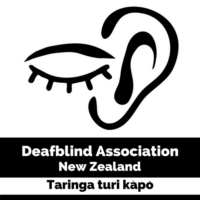As a person who has lived experience of deafblindness, David Wilson has a unique understanding of this population. “I have gained life skills through the University of Life and have developed awareness of the complexity that providers, policy makers and wider community have to support, fund, work with, and live with to uphold a quality of life for people with dual sensory loss.”

He has a real passion to:
- Promote and improve the recognition and awareness of deafblindness as a unique congenital or acquired dual sensory loss that affects children, adults and elderly people in any culture or social status
- Support equalisation of opportunities in all aspects of life
- Encourage the development of networks and opportunities for providers and learning for professionals, to the benefit of deafblind people and their families
- Promote and improve education and opportunities for development for deafblind people
- Encourage support and services for deafblind people that lead to self-determination and quality of life
- Promote and improve quality in services for deafblind people by encouraging research, staff development and training, policies that lead to good practice and the dissemination of information
Currently, David serves as deafblind coordinator with Worklink LTD on the South Island—promoting deafblindness to service groups and providers: needs assessors, government and non-profit agencies.
In 2010, he served as a member of the review panel for the Practicum paper for the Post Graduate Diploma in Specialist Teaching, and as a member of the Ministry of Health Priorities with Disabilities planning and research funding panel.
David has held a wide variety of volunteer roles: vice president Deafblind Inc., Chairman Canterbury Deafblind support group, and coach and manager Athletics Rugby.
In his spare time, he enjoys following all types of sports, spending time with his children, and collecting military items such as guns and swords.
